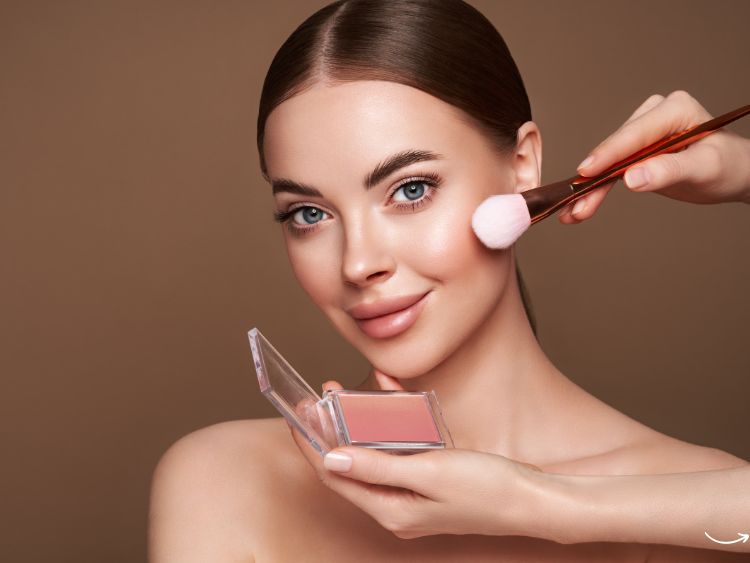Are you passionate about makeup and beauty? Have you ever dreamed of transforming faces and making people feel confident and beautiful? If so, a makeup artist course might be the perfect path for you. In this comprehensive guide, we’ll delve into everything you need to know about pursuing a career in makeup artistry. From the basics of what a makeup artist does to the details of choosing the right course, we’ve got you covered. So, let’s dive in and discover how you can turn your passion into a rewarding career!
Why Choose a Makeup Artist Course?
Becoming a makeup artist isn’t just about applying lipstick and eyeshadow; it’s about creativity, skill, and understanding the art of enhancing natural beauty. Here’s why you should consider enrolling in a makeup artist course:
- Skill Development: A course provides structured training to hone your makeup skills, from basic techniques to advanced artistry.
- Professional Guidance: Learn from industry experts who can offer invaluable tips, tricks, and insights.
- Portfolio Building: Create a professional portfolio that showcases your work to potential clients and employers.
- Networking Opportunities: Connect with other aspiring makeup artists, industry professionals, and potential clients.
- Certification: A recognized certification can enhance your credibility and open doors to various job opportunities.
What to Expect from a Makeup Artist Course?
Curriculum Overview
A well-rounded makeup artist course will cover a wide range of topics to prepare you for a successful career. Here’s a glimpse of what you can expect to learn:
- Basic Makeup Techniques: Foundation application, contouring, highlighting, and blush.
- Eye Makeup: Eyeshadow blending, eyeliner application, and eyebrow shaping.
- Special Effects Makeup: Techniques for film, theater, and Halloween makeup.
- Bridal Makeup: Creating timeless looks for weddings and special occasions.
- Fashion and Editorial Makeup: Makeup for photoshoots, runway shows, and magazines.
- Hygiene and Safety: Proper sanitation practices to ensure client safety.
Hands-On Training
Practical experience is crucial in a makeup artist course. You’ll have the opportunity to practice your skills on models, which will help you gain confidence and improve your technique. Many courses also offer internships or placements with professional makeup artists, providing real-world experience and exposure to the industry.
Tools and Products
You’ll learn about various makeup tools and products, including:
- Brushes and sponges
- Foundations and concealers
- Eyeshadows and eyeliners
- Lipsticks and glosses
- Special effects makeup kits
Understanding how to use these tools effectively is key to becoming a successful makeup artist.
How to Choose the Right Makeup Artist Course?
Accreditation and Certification
Ensure the course you choose is accredited and offers a recognized certification. This not only validates your skills but also enhances your credibility in the industry.
Course Length and Format
Courses can range from a few weeks to several months. Consider your schedule and how much time you can commit. Additionally, decide whether you prefer in-person classes or the flexibility of online courses.
Instructor Expertise
Research the instructors’ backgrounds. Look for experienced professionals who have a strong portfolio and industry connections.
Reviews and Testimonials
Read reviews and testimonials from past students to gauge the course’s effectiveness and reputation. Positive feedback is a good indicator of a worthwhile program.
Cost and Financial Aid
Compare the costs of different courses and check if they offer financial aid or payment plans. Investing in a quality course is essential, but it should also fit your budget.
Career Opportunities for Makeup Artists
Freelance Makeup Artist
Many makeup artists choose to freelance, offering their services for weddings, photoshoots, and special events. This path provides flexibility and the opportunity to build your own brand.
Working in Salons and Spas
Salons and spas often hire makeup artists to provide a range of beauty services. This environment offers a steady stream of clients and the chance to work alongside other beauty professionals.
Film and Television
If you have a flair for dramatic and special effects makeup, working in the film and television industry can be incredibly rewarding. You’ll create looks for actors and actresses, contributing to the visual storytelling of productions.
Fashion and Editorial
Fashion shows, magazines, and editorial shoots require makeup artists to create stunning, high-fashion looks. This career path is fast-paced and highly creative, perfect for those who thrive under pressure.
Teaching and Training
With experience, some makeup artists choose to teach and train others. This can involve working at makeup schools or offering private lessons and workshops.
FAQs
What qualifications do I need to become a makeup artist?
While formal qualifications aren’t always required, completing a makeup artist course and obtaining certification can significantly boost your career prospects. Additionally, having a strong portfolio and practical experience is essential.
How long does it take to complete a makeup artist course?
Course lengths vary, but most comprehensive programs take between a few weeks to several months. Shorter courses are available for specific skills or techniques.
Do I need a license to work as a makeup artist?
Licensing requirements vary by location. Some regions require makeup artists to have a cosmetology license, while others do not. Check your local regulations to ensure compliance.
Can I take a makeup artist course online?
Yes, many reputable institutions offer online makeup artist courses. These can be a great option if you need flexibility or cannot attend in-person classes.
How much can I earn as a makeup artist?
Earnings vary based on factors such as location, experience, and the type of work you do. Freelance makeup artists can set their own rates, while those working in salons or for companies may have a fixed salary. On average, makeup artists can earn anywhere from $30,000 to $75,000 per year, with top professionals earning even more.
Summary
Embarking on a career as a makeup artist can be both fulfilling and lucrative. By enrolling in a makeup artist course, you’ll gain the skills, knowledge, and confidence needed to succeed in this dynamic field. Whether you dream of working in fashion, film, or freelancing, the right training can set you on the path to achieving your goals. So, why wait? Start your journey today and turn your passion for makeup into a thriving career!





